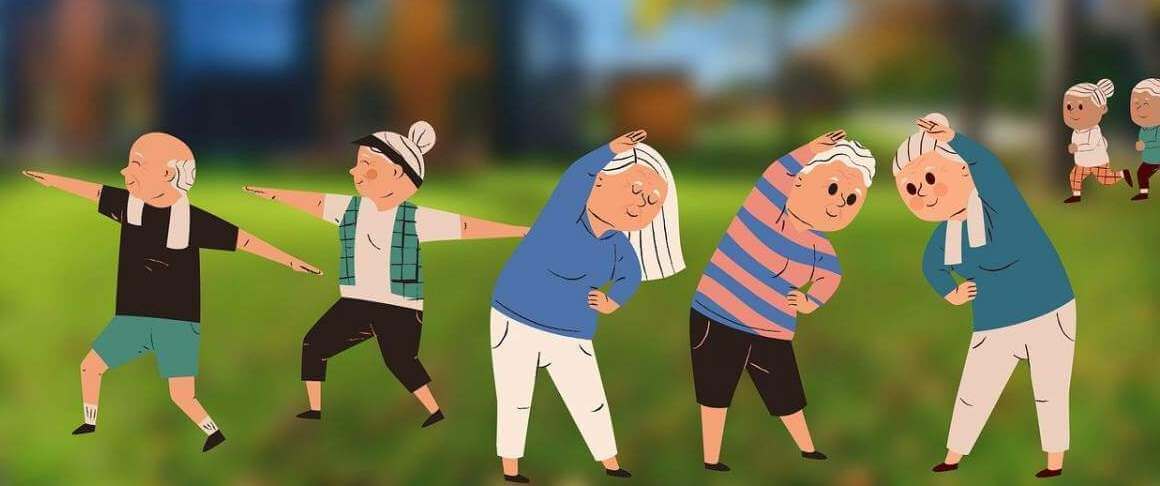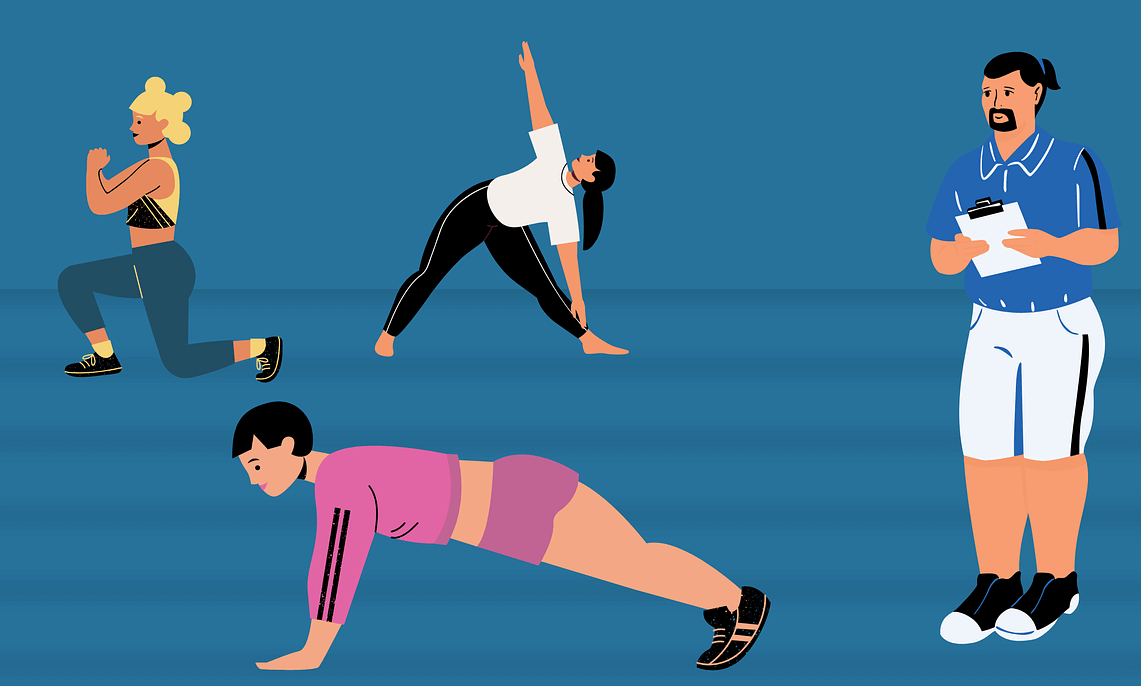Physical exercise or Workout can be defined as any movement of your body that uses your muscles and expends energy. It can be intense physical exercises, such as walking, hiking, or riding a bike, or more energetic activities, such as running, fast swimming, cardio, or rope skipping. According to experts, the average adult should exercise between 75 and 150 minutes each week. Any activity that increases the heart rate, causes you to breathe faster and causes you to feel warmer counts as a workout.
Physical activity can improve mental health and relieve symptoms of mental illnesses such as depression and anxiety. While the physical Health advantages of exercise are well-known, the connection between exercise and mental health is sometimes ignored. According to research, physical activity can prevent mental health problems from developing.
But physical health does not mean only strength and exercise; but all our bodily functions and organs should work properly. Expert recommends a regular health checkup (at least once in two years), so you can ensure a healthy body and mind.
What is the role of physical activity on overall mental health and fitness?

Physical activity can substantially improve our health. Even 10 minutes of fast walking boosts our mental focus, energy, and positive mood.
Regular physical activity can boost our self-esteem while also reducing anxiety and stress. It also helps to avoid the development of mental health problems and raise the standard of living for people suffering from them.
Influence on our mood
Physical activity has been found to enhance our mood. People were asked to estimate their mood after periods of physical activity (such as taking a walk or even doing housework) and hours of inactivity in a study (e.g. reading a book or watching television). Researchers discovered that participants felt more satisfied, energetic, and calmer after being physically active than after periods of inactivity. They also found that physical activity had the most substantial impact on mood when it was low.
Many research has been done on various physical activity levels on people’s moods. Overall, low-intensity aerobic exercise – 30–35 minutes, 3–5 days a week, for 10–12 weeks – was the most effective for raising positive emotions (e.g. enthusiasm, alertness).
Effect on our stress levels
Sleeping problems, sweating, and loss of appetite are the most common physical symptoms of stress. A rise of stress hormones in our bodies, sometimes known as the “fight or flight” response, causes symptoms like these.
Physical activity is beneficial in reducing tension or stress. According to research on working adults, highly active people have lower stress levels than less active ones.
Influence on our self-esteem
Exercise improves physical health, but it can also boost our self-esteem. Self-esteem refers to how we think about ourselves and see our value. It is a vital sign of our mental health and ability to deal with life’s stresses.
Physical activity or workouts can improve the sense of self-worth and self-esteem. This connection has been discovered in males and females and children, adolescents, young adults, adults, and the elderly.
The effect on depression and anxiety
Physical activity could be used as a complementary therapy for depression. That can be used on its own or combined with medication and psychotherapy.
Physical activity can help people with mild anxiety symptoms and may also aid in treating medical anxiety. Physical activity is accessible to all and is an empowering method for self-management.
What workouts are beneficial for overall mental health and fitness:-
A person can gain muscle strength and improve their heart, lung, and circulation health by combining aerobic activity and strength exercises.
- Squats with your bodyweight
- Pushups
- Lunges
- Side Planks
- Swimming
- Dancing

1. Squats with your bodyweight
Squats are more beneficial to the body than you may realise. It’s a workout that focuses on the lower body while also exercising the top layers, including your mental wellness. Squats are beneficial in more ways than one. Squats are essential workouts for illness prevention and attaining suitable physical, mental, and emotional health.
Squats have different benefits for men and women, but they are still Important in the growth of the knee, hip, and ankle muscles.It benefits other parts of the body, but to get the best results, focus on the incredible benefits of squats for your body and health.
2. Pushups
The push-up enhances both the upper and lower body. It can be adapted in various ways; beginners can begin with more accessible variants, whereas more advanced athletes use more difficult variances. The push-up can be part of a bodyweight workout, a cross-training routine, or an intense workout.
3. Lunges
Lunges are a prominent core work exercise for people who want to strengthen, reshape their bodies, and improve overall mental health, fitness and athletic performance.
Such a resistance exercise effectively enhances your back, thighs, and legs while improving stability and flexibility in the body. Lunges are perfect for those looking to get stronger and existing athletes, such as runners and cyclists.
4. Side Planks
According to research, doing planks on a routine basis can improve mood and brain function. Moreover, planks can help with symptoms of anxiety and depression. Remember that you can only get these psychological benefits if you do planks every day.
5. Swimming
Swimming is best for people of all ages. This vital form of exercise helps keep you physically active and flexible, which can help you achieve your preferred body or maintain your mental health. Swimming is commonly used to treat injuries, particularly cardiac and muscular injuries. It has been shown that it helps arthritis patients to exercise their damaged joints without overcoming their symptoms. Many doctors advised new mothers and pregnant women to swim to relieve stress and improve their mental health.
6. Dancing
Dancing improves physical and mental health by preventing falls, improving posture and flexibility, elevating mood, and reducing stress. It’s also a great activity that improves the mind, boosts aerobic strength and power, encourages strong connections, and can aid with pain and stiffness.
- It boosts confidence
- It Reduces Anxiety and Stress
- It Encourages Emotional Expression
- It Enhances Cognitive Ability
Dancing sharpens your memory & keeps you from developing impaired memory or cognitive decline as you get older. Tap Dancing, in particular, is an excellent form of mental workout. It enhances your focus by varying your movements and learning and remembering new moves and patterns.
